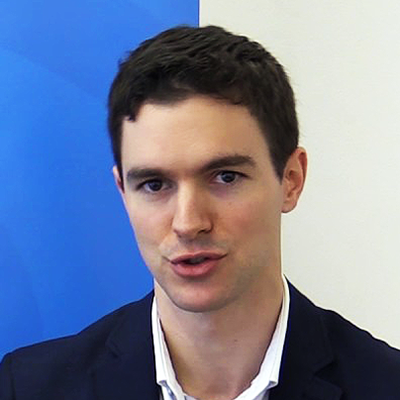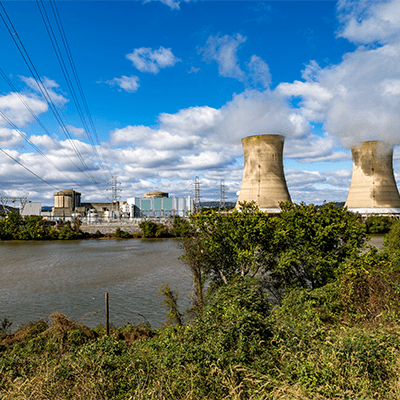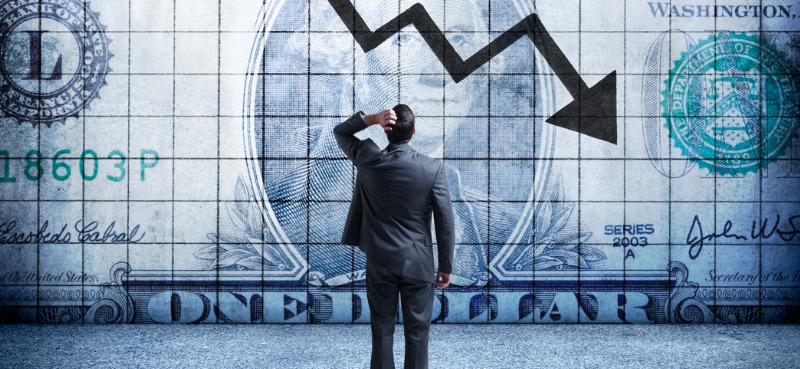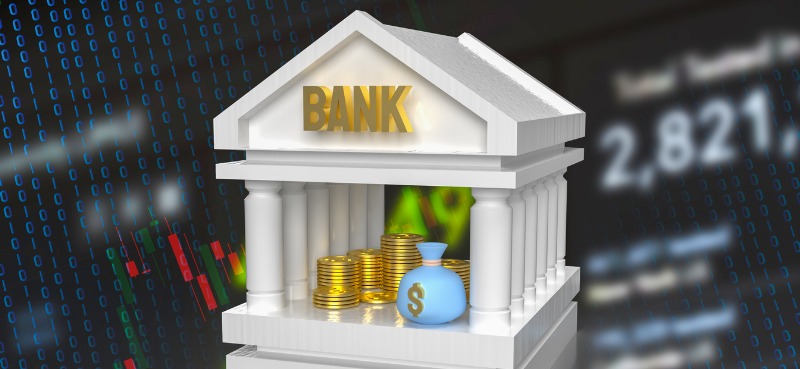You may not think what’s going on in the rest of the world matters to your portfolio… but it does.
And insular thinking is an Achilles heel for many investors…
My guest today is Angel Martin Oro, editor of Spanish investing website inBestia.com [10:13].
Pull up a stool as Angel shares his knowledge of the Spanish economy, the professional investor landscape, and his views on investing opportunities within his own country—and beyond.
The Mike Alkin Show | 55
An investing world without borders
Announcer:Free and Clear, the Chatter from Wall Street, you’re listening to Talking Stocks Over Beer, hosted by hedge fund veteran and newsletter writer Mike Alkin, who helps ordinary investors level the playing field against the pros by bringing you market insights and interview with corporate executives and institutional investors. Mike sifts through all the noise of mainstream financial media and Wall Street to help you focus on what really matters in the markets. And now, here is your host, Mike Alkin.
Mike Alkin:The Rangers made the playoffs. No, I’m kidding, it’s April Fools, sorry. Welcome to the podcast. The Rangers did not make the playoffs, they’re at home, it’s the Islanders that made the NHL playoffs. Sorry Rangers fans, couldn’t help myself. I will now be persona non grata by half my neighbors, but that’s okay. Hope you had a good weekend. I’m sitting here with an icepack on my thigh, pulled a muscle in my groin and my thigh Friday night. That’s how you know you’re getting old. Had a one-timer from the top of the slot, top of the circle. Did go in, but I yanked my groin and my thigh while I was doing it, so it felt like a needle was being … a knife was being stuck through my leg. But the show must go on, so I went the way through the rest of the game, got home and regaled my family with my one-timer from the top of the circle.
They didn’t really care, told me to stop complaining about my leg. But anyway, that was my weekend. Also had made the … I think I made the commitment in the garage I’m putting in an indoor … I’m putting in boards, hockey boards, Plexiglas. Going to put the synthetic ice down for the summertime. It’s the synthetic plastic that you can skate on. It’s not going to be that big, but get the boards, get the goal in there, get a couple of stick handling devices. Little stuff just to keep it going in the summertime. And I found the boards, I kept … “Where can you find boards?” And I kept Google searching, Googling and Googling and finally found it. So, I’m going to do that, it’ll be small like I said, probably 12 by 15 or something like that.
But, we’ll do that, and it’s just good to get the skates on in the summertime. Because I roller blade around the neighborhood with a hockey stick and my gloves on, I look like a bit of a weirdo, but that’s okay. So, let’s see what else. That was pretty much it. I think you know I’m fairly handy, not. Wife asked me to hang three pictures, that was it. Put three pictures up in her dressing room area, the closet. And I did, but I thought, you know, if I was in the closet, the little closet where we keep tape and all that stuff. And I found these little things that stick to the back, you peel them on one side, you put them on the back of a picture on the other hand, I thought, “That’ll work.” Because then I’ve got to nail, I’ve got to put the anchors in, pain in the ass. And for some reason I’m not that good. I had one of those stud finders, I never could figure it out.
So, I figure she’ll never know. And these are kind of light canvas paintings, the kids had made them a few years ago. So, she wanted to put them up, three in a row vertically in a portion of her closet. And I have my own closet, and I’m not allowed to use her closet because I wear the same old stuff, and she gave me a separate space. So, I figured how to put them up. So, I did, I stuck them on the back, I lined them up, put them up. And she said, “You’re done already?” She was downstairs, I said, “Yeah, why?” She said, “I didn’t even hear you banging anything.” I said, “I don’t know, it worked like a charm.” Later I’m downstairs, she comes downstairs. She’s like, “You used the little tabs?” I said, “Yeah, why?” She said, “Because they’re all on the floor.”
So, she had gone up a half hour later, everything I did fell. So, that’s my project today, I’m back, I’ll be doing that. And in the interim it was a pretty quiet weekend. The Islanders did clinch, they’re going to the playoffs, so I’m pretty excited about that. You know, interesting, the quarter ended, and we saw … had a huge quarter. I think the S&P they were all up, Russell, all up something like, I don’t know, 10, 12, 14% depending on which one. It’s really interesting because the earnings growth is expected to decline about 3.9% for the S&P 500. Yeah, that’s pretty much what it is. On December 31st the estimated earnings growth was 2.9% for the first quarter. So, the earnings guide for Q1 of ’19 so far, 79 S&P 500 companies have issued negative EPS guides In 2018, they issued positive guidance.
I’m just reading this, kind of interesting. So, during the first quarter analysts lowered earnings estimates for companies in the S&P, the Q1 bottom up estimate, which is an aggregation of the median EPS estimate of all the companies in the index, dropped by 7.2%. So, the earnings figure for the S&P 500 is 3733 from 4021 during the first quarter. So, what’s that mean? How big is a 7.2% decline in the bottoms up EPS estimate during the quarter. During the past five years, or 20 quarters, the average decline in the bottom up EPS estimate during the quarter has been 3.2%. During the past 10 years, 40 quarters, the average decline in the bottom up earning estimate during a quarter has been 3.7%. During the past 60 quarters the average decline has been 4%.
So, the decline in the bottom up EPS estimate recorded during the first quarter for a 7.2% drop is larger than the five year, the 10 year, and the 15 year average. Normally, how’s that work? Markets doing well, market starts to slow down, economy starts to slow down, and the Fed what can they do to jump start things? They can lower rates. What’s the problem the Fed has now? Rates are already really low. They were trying to raise rates so that they had that tool after this 10-year global financial experiment of 5,000-year low rates around the world. Keep rates low and jump start things, then all of the sudden you get asset bubbles all over the place. So, they want to bump rates up a little bit, let’s get some normalcy back into it, and the market went down 20% when they tried that. But it would have been nice, because they would have had room to lower when things start to slow down.
And they’re starting to slow down. Industrial slow down, you’re seeing it all over the place. Factory activity in most of the world shrank last month. Figures are coming in, and you’re seeing it in the Euro zone’s getting hammered, Germany’s getting crushed. That spreads, but things are fine, don’t worry about it. Again, you’ve heard me say it before, if you were fortunate enough to have money at work this quarter, you know what you own, take some off the table, be cautious. You are seeing animal spirits at play, and that can turn on a dime. And I don’t think that the Central Bank has the fire power, that they can, but it’s going to make it much worse if it does. So, Bulls and Bears make money and pigs get slaughtered, just always remember that. In the interim, last week I talked a little bit about Venezuela and Russia and what was going on there.
And, we’re going to start talking more about geopolitics, we’re going to start talking more about the global landscape. I think it’s important to look outside your own borders wherever they may be. And my guest today is somebody that interviewed me a few months ago for his publication in Spain. And I’ve been following him on Twitter and think he’s thoughtful and has some very insightful thoughts and commentary. And, he lives in Spain, he covers the Spanish markets. Spain’s a big economy, it’s an important economy in the world. And so, I thought it would be interesting to have him on, talk about what’s going on over there, greater Europe, and some things that we don’t normally talk about. So, without further ado, let me bring out Angel Martin Oro from inBestia.com. Angel, welcome to the podcast.
Angel Martin Or:Hi Mike, it’s a pleasure to be here talking to you.
Mike Alkin:It’s a pleasure to have you on. I first became aware of you on Twitter, and we interacted a little bit, and I follow what you Tweet. And I went to the website and I like what you do. So, I said, you know, I like his work, you’re a good thinker, let’s get you on and have you speak with our listening audience. So, I appreciate your time today.
Angel Martin Or:Yeah, thank you very much. I’m a regular listener to your podcast, so it’s such a pleasure to be on the other side. Well, I think I’ve listened to mostly 90% of your podcasts and I’ve learned a lot. So, is such an honor to be here.
Mike Alkin:Oh well, thank you. Tell my kids and wife that, I don’t think they listen to it at all. So, maybe, you know. Let’s start by giving listeners some insight into your background on how you are the editor of inBestia.com, which is a Spanish website, an investment website. And it’s great because if you go there it translates to English so you can read everything for those who don’t speak Spanish. One of the things I like to do a lot is, I take a pretty global view in my investing. And I think especially in Americans I say this, I forget the number, but it’s a shockingly low number of Americans, even Congress people and Senators who have passports. So, there’s this very insular thinking.
And, in investment, it’s so important to have a global view. And that’s why I’m so excited to talk to you today, because you’re in Spain and you view the world through a different lens. So, share with listeners your background, how you came to investing, how you came to inBestia. So, give us a little background.
Angel Martin Or:Yeah. Well, I come from a [inaudible 00:12:23] academic background. I started at university a few years ago, like 12 years ago. And I studied economics at university, the way I started to get interested in economics is a bit serendipitous, I would say because I didn’t know what to study at university, and somebody recommended me to study economics or some discipline related to that. And I said, “Well, why not.” I was interested previously on international relations, and international politics. But, I started economics, and I really got hooked on economics. And I really got interested in how economics tries to explain the world. And I soon realized that the mainstream of economics didn’t do a good job, at least in my opinion, to explain how the economics world works.
And so, I discovered off-stream economics, which is a school of thought that tries to see the world from a different lens. And I wasn’t getting too much detail about it, but that’s a different school of thought than the mainstream. And I also got interested in policy issues and classical labor lessons, and that’s sort of my background. When I was studying economics at, I always got the sense of the mainstream explanation of things, and I always tried to contrast that explanation to the off-stream view, which mostly I saw as a more appropriate explanation. So, there I had a chance to have constructive views on economics, and I think that was enriching because, I was a bit too radical perhaps against mainstream economics and for off-stream economics.
And then I discovered that perhaps things are more nuanced, and I got less radicalized. So, this is more or less my background at university, and then I started to study an MA, masters in research and economics. And that was too mainstream, so I tried to do my best and learn my best, but … And then I started a PhD in economics, too. I wasn’t sure what I would want to do, so that kind of was appealing to me, the research part. Then as years went by I realized that research and the pure research, academic stuff wasn’t my thing.
So, I started to get interested more in investing. And I’ve been managing some personal and family money for a few years. And I started investing my first Euros in 2007, which is a long time ago. But, it was very intermittent because I stop investing and then I started to invest again, but that was very intermittent. And I think it was in 2013 or so when I really got very interested, and I started to get more interested in investing. And one thing that is important is that my interest in time devolved to invest in [inaudible 00:16:28] as a money and a management group, which is quite logical.
Mike Alkin:Without getting into an economic discussion, just for listeners who may not be familiar with the term Austrian Economics, and I’ll just keep it brief, and correct me if I’m characterizing this incorrectly. But, really the Austrian School really focuses on the subjective choices of individuals. It’s really subjective, and it comes down to the individual and that’s really what an Austrian economist might think about. Whereas traditional, if you will “traditional,” economic thought focuses on all these aggregate variables. They look at equilibrium analysis, and they look at societal groups rather than the subjective choices of individuals. Am I in the ballpark there? Is that how you would characterize that?
Angel Martin Or:Yeah, that’s a very good description of Austrian economics. And also a part of Austrian economics is a theory of the business cycle, and that part of the business cycle is important to invest into it. And some things that we can use in analyzing deep [inaudible 00:17:40] industries may also be helped by Austrian economics in the realm of the business type of theory. Because, in capital cycles, we try to analyze the cycle where capital flows in and out of industries.
And the Austrian Business Cycle Theory has a lens to that. It plays a big role in the banking system, in the Central Banks, too. And how the credit cycle works, and how the industries play a role in the economic world. And that also interacts with the real economy with the real aspect in the economy, which in other schools of thought, perhaps, you have on the one hand you have money, and you have monetary issues, and on the other hand, independently from that you have the real economy. Here we are joining the real economy, and the financial economy are really joined. And you can have a monetary policy to lose, for instance, and not have impact from the real economy. And that’s also an important aspect of the Austrian School.
Mike Alkin:Great. So, you’re in Spain. Where in Spain are you?
Angel Martin Or:I’m living in Alicante, which is a community in the Valencia Community, which is in the East Coast of Spain. We enjoy very good climate, and very good life, I would say.
Mike Alkin:That’s great. So, folks, let’s talk about Spain for a second. If you think about Spain, it’s the 13th or 14th largest economy in the world. It’s one of the largest by purchasing power parity. It’s a member of the European Union. It is the fifth largest European economy, it’s behind Germany, the UK, Italy, and France. But it’s a big deal. Spain’s a big … it’s 1.4 trillion dollars, it grew just about 2.5% or so in 2018. Down a little bit, but like the rest of the world you’ve seen a little bit slowing growth down from 3% the year before. Big tourism economy, unemployment is a little bit high, Angel, it’s 13, 14% or so. But, talk to us about what’s going on in Spain, give us an overview, give listeners an overview of the economy. What some of the opportunities for the Spanish economy are, some of the things you’re concerned about, and what the environment is right now.
Angel Martin Or:Well, right now we are facing new general elections in the end of April. So, it’s just in a month we will have another general election. And right now I will tell you a little bit about the current comforts, and then perhaps, a bit more of a long-term story. Right now we are facing an economic slow-down in Europe, and Spain is not an exception to that trend. But we’re-
Mike Alkin:Better than Germany though, right now. It’s not slowing as much as Germany.
Angel Martin Or:Yeah.
Mike Alkin:That’s good, sorry to interrupt.
Angel Martin Or:I think we are holding up quite well. And part of the reason is that, Spain is not such an open economy as the Germany economy. German economy is very much influenced by what happens in China, for instance. And Spain is a little bit more … its basis more the influence of Latin America and other parts of Europe. But it doesn’t have such an inter-relation with China. So, that’s good or bad depending on how China does. The German economy got a very big boost in the 2000s because of the rise in China. We can talk about companies in the automotive sector, for instance, we can talk about the BMWs the Volkswagen that had a very big boost because of China growth. And that positive part in the German growth and in the last few years, perhaps, we’re seeing the negative side of a bigger inter-relations to China.
And Spain doesn’t have that. I would like that if Spain was a little bit more export oriented perhaps to the big growth engines of the world like Asia. That isn’t the case. But, right now that seems to be a good part because China is slowing down, and Spain is holding up quite well. And also another reason is that we are coming out of a terrible few years in Spain more or less between 2008, 2015. We not only had the Great Recession that impacted all over the world, but we also had the US in crisis, which was more or less as intense as the Great Recession in Europe. And so, one may wonder about what caused the European crisis or what caused the Great Recession. We could talk a lot about that, but to make things brief, we had a housing bubble, a credit bubble in Spain, and also in other countries, but I will focus in Spain.
We had a lot of exceptions that had to be corrected. And that correction came with the global recession, and then also with the US in crisis. And also most of those excesses were in housing and financial sectors. That when you have excesses in the financial sector those excesses are usually spilled over to a lot of other sectors like the auto sector and others. So, you have a systemic crisis, not only in the financial, but also in the real [inaudible 00:24:30]. So, those excesses I think have been corrected in most part, perhaps the only area where those excesses are still there are in the public sector, which is in a deficit position where the public debt has risen quite dramatically. But, in the private sector economy I think the position now, and in the last few years is much more solid to grow in a sustainable manner in the foreseeable future.
For instance, the banking sector total assets have been going down since 2012. I don’t think there are any excesses now, and that part, that argument makes me a little bit optimistic about the cyclical perspective on the Spanish economy. Because you will usually tend to have recession when previously you have had a lot of excesses. And usually in the housing, and in the financial side, but right now and in the previous years we haven’t had any excesses. So, that makes me a little bit optimistic about Spain. We have important, certain structural challenges in the labor market, in productivity, in innovation, and also institutionally where we have the Catalonian [inaudible 00:26:00], and that makes a little bit the future of the unity of Spain, makes it a little bit uncertain.
And we have also parts of the public sector, which is very highly contested, but that’s not exception the exception because globally public sectors are investors, too. And that is more or less the picture as I see it. I don’t see recession coming or at least a serious, deep recession coming in Spain because, as I said, there have been no excesses. We can have a slowdown, as we are having right now, but I don’t think the environment is very bad right now.
Mike Alkin:The tourism seems to be a big part of the economy. One of things I was noticing is tourism … how do you compete on tourism? Who do you compete with? Is tourism typically something that is a continual grower in that part of the world? Are you competing with other countries that are … And does it ebb and flow? Because sometimes, I was reading some stuff that said Turkey, Tunisia, Egypt are really starting to grow their tourism. When you see that happen does it pull away from Spanish tourism, or is it something that just it all grows in unison?
Angel Martin Or:Well, tourism has grown very well in the previous years, but we are already having a slowdown in growth in tourism. And I think that the competitors with Spain in tourism are some of those that you mentioned. And the instability, for instance, in North Africa would be with the African Spring, I think it was called a few years ago. I don’t remember the exact year. But, the Arab Spring had a positive effect on Spanish tourism because we’re close, and the people in Asia and Europe and Russia. The people who want to go on tourism may decide over a few options and Spain is one of them, North Africa is another. We also have a few other countries in the Mediterranean like Greece or Italy. These are more or less the competitors with Spain in tourism.
And, yeah, it’s been a very positive source of growth in the previous years. And the tourism sector in Spain has to keep working because the instability, political instability that there’s been in other countries perhaps won’t last forever. So, the sector has to keep innovating and keep trying to attract tourists all over the world.
Mike Alkin:All right. So, let’s talk about you start out, you studying economics. You then want to morph into writing and writing about investing. So, when you do that, and I see you do some really good work, talk to listeners about your investment philosophy and how you formed your investment philosophy that shapes the way you think about writing about companies, writing about the economy. Help us understand how you think about the investing.
Angel Martin Or:Well, first I want to say that I mainly a second-hand dealer of investment ideas. Because I have a job related to investing, but in this job you can spend one week, one or two whole weeks researching deeply one idea then it’s not that kind of job.
Mike Alkin:Then it’s on to the next one. Yep, but you have to know how to filter it down so you can explain it to your readers.
Angel Martin Or:Sure. I completely agree with that. But, I first wanted to say that because I’m not a portfolio manager, or I’m not a retail investor that can spend a whole lot of time with one idea. So, I just wanted to clear that. I would say that I don’t have a clearly defined philosophy, I would say. And I think it’s evolved through time. Well, I think most of us in our beginnings made very silly mistakes, and I did that, too. And even afterwards, even when I started to take this more seriously, I also did a very serious mistake. But, with time I think I’ve been evolving, and I think that relates to the general environment of the market. And sometimes you can be less, perhaps, less … I would say less tricked with valuations. Perhaps in 2009 you could buy whatever you want, and you could do very well.
And there are always times some sectors are very out of favor, and they may be very interesting. And I kind of try to adapt to the general environment in the market. For instance, right now the last year or so I’m more focused on looking for secret code names, and uranium is one of them. Shipping, oil, some commodities is one of the areas that I’m interested. And as a general overview, I try to focus on the fundamentals. I’m not a technical analyst, although I try to read a little bit about that. And I also have a top-down perspective, top-down view. I try to read quite a lot about macro stuff. But, I think it’s very hard to implement. You can have a very broad view of how the general market, the position of the general market in cycle for instance.
You can have a view about the economy, about your perspective of the US economy, which is the biggest and the most important, with China. But, how you translate that into actionable ideas, that’s a bit harder. And you constantly see some global market investors that may have it right, that may have the general macro-view right, but then the execution is very hard to do. And the execution is the most important thing, because an investor is here to make money, and you can be right, but if you don’t make money, that’s a waste of time and money. So, that part is something that I think is hard to implement. Although I try to read a lot about the top-down view and perhaps in the future it will help my investing, too.
And in my personal portfolio I combine mutual funds with individual stocks, and I try to keep it simple with a few ideas because I am not able to follow a lot of them. I can’t have 20 ideas and follow them adequately. So, most of the ideas I take them from fund managers that I know and follow and admire, perhaps sometimes in [inaudible 00:34:45] sectors, and [crosstalk 00:34:47]-
Mike Alkin:Yeah, I was going to ask you that. Not to interrupt you, but for you to say you like uranium, you like shipping and that stuff, you have a contrarian bent to you. And given that you’re writing and I’m sure you’re following closely the Spanish equity markets and the Spanish institutional investor market, can you talk about some of the funds there? Give us a background first of the institutional investing market in Spain. And if you can, if you’d like to talk about some of the funds that you think it’s worth people focusing on that you pay attention to.
Angel Martin Or:Yeah, sure. Also, I’d like to say that in my job following the, or tracking the fund managers is one of my key paths. So, I am very happy to talk about this. Firstly is the general conflicts about the institutional fund managers in Spain. We have a very bank independent sector where the asset managers of the big banking groups is part of the main institutional managers. And unfortunately, and I say unfortunately because most of the Spanish people money, which isn’t in investment funds is in the asset managers. So, that’s why unfortunately the asset managers from the banking groups have done a very poor job, and they haven’t beaten the market by a very good margin.
And I don’t think that’s an exception to other countries, but perhaps here it is a little bit more saturated. And so, we have a relatively small sector, independent sector of small boutiques, small investment [inaudible 00:36:56]. And although it’s relatively small compared to the whole fund manager institutional sector, I think it’s worth following. And we have some very good fund managers in the independent side, and I would mention for instance Azvalor, which is A-Z-V-A-L-O-R, which they are very contrarian, too. And currently they’re positioned for bull market and commodities. And they’re a generalist, they are a generalist investors, too, as you are. And, I’ve listened to the podcast, and you always say that you are a generalist.
And these Azvalor are also generalists in the sense that they try to look at a …. Sorry, at a global view of the market, and different to approaches, different sectors. And currently they are focusing on several commodities. And they have a big position in chemicals for instance, in uranium. They have a little bit about 10% of the fund in uranium. Some 20% in gold equities, like 20% also in oil and gas, some in copper. And they are very positive on commodities and on particular companies in the commodities sector. And that’s something that really got my attention a few years ago. And personally, I thought they had … I would say that they had gone crazy in a way. But, I started to follow this a little bit more closely, and I started to study this stuff a little bit more closely, and I thought that this makes a lot of sense.
When you look at individual commodities, when you look at uranium, of course, but when you look at copper, for instance, and there’s issues is that emerging market growth is going to be there for a long while. And they are going to need a lot of materials, a lot of copper because of the urbanization, and because of the middle class growth. And that’s where demand is going to come for copper. And, when you look at the supply dynamics, you see also that there’s been under investment in the sector, and you also see that costs are rising. And so, when I looked at the individual commodities I thought that this might make a lot of sense.
And then I also started to get my interest in uranium, and, of course, as your listeners know, this is a very interesting commodity where supply and demand is very attractive, and so on and so forth. I’m not going into details because your listeners know a lot about that. And also, oil may be , and when you look at the parity, or when you compare the price of oil with the price of oil equity, so exploration and production of off-shore drillers and so on, you see a little, I wouldn’t say a little bit, I would say a big divergence. And the oil prices have held out quite well, while the oil equities are catching the lows of a lot of years. So, this is one of the fund managers that I follow, that I think that they are onto something in commodities.
And, we also have another big independent fund manager, which is Cobas Asset Manager … Asset Management, sorry. And they are also big investment in shipping equities, and I think that’s also an interesting play. Well, I might talk some more about other institutional fund managers, but I think that covers a little bit the spectrum, and the fact that some generalists investors in Spain are betting big on commodities, and are betting big on shipping equities. That’s interesting to me, and that attracts me to dig a little bit deeper on those areas.
Mike Alkin:Well, it’s interesting that the generalists are gravitating towards that. It must, you know, four years ago, three and a half years ago that’s value, obscene value is why I gravitated towards uranium. When you talk to them, is it they’re not commodity experts but what is it that is attracting them to the commodity sector?
Angel Martin Or:Well, I would say first of all, the fact that the commodities have been beaten down in the last few, I would say, seven, eight years. I think the peak was in 2011 for most of the commodities. So, you’ve had a few very bad years in the price, and when you have in cyclical sectors like in commodities, when you have a lot of years of low prices and then [inaudible 00:42:56] said that the cure for low prices is low prices. And that is a big truth. The fact that you’ve had a very terrible market for a lot of years has made investors fleeing those areas. And that relates to the capital cycle constant. It is when higher returns follow sectors where there’s been under-investment, and that is the case with uranium, and that is the case with other commodity areas.
And then, they also think that the overall market is a little bit higher, a little bit expensive. They don’t like the technological names, and that is something that I’m not sure of, and other value guides in Spain, for instance, have a different perspective. Some value guides here in Spain have invested, for instance, in Alphabet and Google, others are invested in Facebook. And these other fund managers don’t see the potential there, or don’t really understand what is going on in Facebook or other technological names. And I think that a value investor may invest both in these secret code names, may invest in uranium mining, may invest also in tech equities. I think we have to be agnostic about sector, and some value guides are very … usually perhaps have some prejudices to the tech sector. I don’t know why because perhaps it is a very dynamic, very fast sector, which changes a lot.
But, I think that perhaps you’re seeing a kind of, or we have seen a structural change in the economy, in the sense that there’s some business models in the tech sector Apple, Alphabet, Amazon, that may grow a little bit higher than it was supposed to be. And another aspect is the price, of course, you have to make the valuation calculations. And now I think that in the tech sector there may be other opportunities. But, in the commodity space, I think this is the main reason how the industry capital cycle works, makes some of these industries very appealing to these fund managers.
Mike Alkin:That makes sense. Tell us about inBestia. Tell us about the publication, who its readers are? What the goal of the publication is? Share with us that.
Angel Martin Or:Yeah, sure. We publish articles on mutual funds, macro stocks, stocks from the [inaudible 00:46:15] and other various things. The goal is mainly to inform the public on investment opportunities and to increase financial indications. And we also have … the owner of the website is a fund manager himself, he’s a global macro manager. And we also work with a few other fund managers, like I said Azvalor for instance. And we work here as a communication avenue to reach investors. We are a website where a lot of investors visit us to read about investing, about general news, about opinion, about analyses of the investment world. And we are also open towards these other firms who want to have access to the Spanish investing market.
And we also have a couple of subscription services, one is for stock selection based on financial analysis, and the other service is focused on options. And we also offer educational courses from time to time. Generally the reader of inBestia is more or less an investor with up to 100,000 Euros, which is very usually focused on Europe and Spain. But, as a surprise we’ve recently done a survey, and we found that our readers are more interested in the US market than in Europe and Spain, which kind of was a surprise to us. And they’re mostly also interested in mutual funds, which can be accessed for the Spanish investor. And also most of them have a fundamental or a macro view of investing. And there’s some technical analysis people, but as we found in the recent survey, they are not a majority.
And another aspect here of the average reader of inBestia is that they have a much higher than average knowledge on the markets. And when I write my stuff, when I write my articles, I don’t usually target them to be average citizen of the Spain, otherwise I don’t think many of them would read my stuff or even would understand, because it’s a little bit higher level for the average citizen in Spain. But, I think we have a public there, and for instance one of the latest interviews that I did was with a shipping sector analyst, which is a very niche sector that you might think that it will attract very little interest. But, we got surprised that it got a high level of interest. And also, I don’t know if your listeners know that I interviewed Mike Alkin for inBestia a while ago-
Mike Alkin:Yes, you did.
Angel Martin Or:… and that interview worked very well. So, there are people in Spain that are also interested in the Uranium market, in the shipping sector, which is kind of interesting. And I think part of the reason for that is because, some of these fund managers that I talked about previously, they are quite [inaudible 00:50:14], they are usually … They attract attention from the press, and they have a lot of investors. So, the fact that they are investing heavily in shipping or in commodities overall, it makes the investors of those funds, and the general public as a whole, also interested in those areas.
Mike Alkin:So, you mentioned uranium and we did an interview a few months ago. Spain is interesting, it’s a nuclear power provider, yet there’s a socialist government that is not really in favor of nuclear power. So, how does it stand now, with the future of nuclear power in Spain?
Angel Martin Or:Well, we all know socialist parties aren’t usually very favorable with nuclear power or at least in Spain. But, I think that in the end the numbers and the pragmatism will win, and we have already seen that a little bit with the announcement that they might expand the life of the nuclear reactors above the level that they wanted to shut them down. So, I think that the numbers and the math will win, and that nuclear reactors will be extended. Because I think that the German case is very Austrian. And I think your listeners already know that, but Germany has grown their renewable part of generation of electricity quite a lot in the last few, I would say decade, although it takes a little bit more, but in the last decade they have grown their renewable capacity substantially.
However, the CO2 emissions have remained flat. And what’s going on there? The renewable people were telling us that in order to fulfill the service agreement, and the climate change stuff, you had to invest a lot in renewable energy. And I think that Germany has done that, but what happened with emissions? They remained flat, why? Because renewable energy is not enough to be the source of electricity for a modern country like Germany. You can have renewable electricity, that would be fine for a little village, perhaps, and even then you have to pay with the [inaudible 00:53:21] that is intermittent, that is not a base low like nuclear or other energy sources.
So, what you found is that emissions have remained flat and probably because also the carbon energy has had to come to the table because they didn’t have enough stable electricity with renewable. So, I think that’s a very good case to show the limitations of renewable energy and augment, of course, we’re not against renewable energy. And then, you have to take a look, you have to be pragmatic, you have to look at the numbers, and if it’s not enough, I mean, it’s so silly to shut down the nuclear reactors when you have them in place. It’s silly, but it is what it is, I think.
Mike Alkin:That’s my view. When I look at the renewables versus nuclear and the either/or, or, all or nothing, to me it’s just silly. There’s a role for both, and it’s recognizing and finding the right balance in the energy mix. But, people get hysterical about it. The far left goes towards the nuclear is not safe, which it is. The renewables forget the waste stream that will come from solar panels that expire and go into the waste stream, and all the poisons and toxins that are in that. But in terms of keeping your emissions down, you need nuclear power. So, that’s interesting. Listen, I really enjoyed … I like to always ask somebody this, or I should, I don’t know if I always do. And you said, it was funny, I got a chuckle when you said you’re a second-hand broker of other people’s ideas, I think, you phrased it.
But, you do have to have your own views and that helps determine what you’re going to write and not write. Throughout your career now, Angel, as you have evolved and learned, are there things that … what’s in your memory bank where you say, “Aha, I’ve seen that before, and maybe I want to stay away from that?” Or, “Well, I used to think something was interesting and now I don’t.” I guess lessons learned, if you will. During your career are there any lessons that stand out to you that you’ve learned, that you take with you and help you become better at your craft?
Angel Martin Or:Yes. Well, I think I have a few stories to tell, or a few actions that helped me maybe learn a few things about investments. I mean this not as a writer, but as an investor who has lost money and learned a little bit. And one of my big wins in my career was Apple. I invested in the end of 2012, and I did well with Apple. But, at first when I invested, the first year I was a bit scared because the stock went down quite a lot. And there was a narrative that Apple was doomed, that the Apple wasn’t enough yet. And I tried to learn quite a lot about the company, about the fundamentals, about the competitive ecosystem with Apple, and the other players. And I thought at the time that, that narrative was not correct, that Apple was much more than hardware. That it was a mixture, a combination of services and software, and also the hardware.
That it had some network aspects, and it had some competitive advantages. But, it was tough at first, and then the reward came. And one lesson that I take from that is the role of narratives. And I think you also think a lot about that. And it doesn’t matter … well, it does matter, I think that even in big names, the biggest name of all in the market, Apple. The biggest market cap in the whole world. Even there were there a lot of analysts following the company. Even there you can have a great and efficient market where the narratives play a very big role, and sometimes those narratives may be wrong, and in this case I think it was a very good example.
And even in very well-followed names, you can do very well. If you have a contrarian view, if you have a different view than major market. And then I also had a bad … well, this is the good experience, and I will also tell a bit about my bad experiences. I also had an experience with buying an inverse ETF in the US market. And that means that the market was going to fall. And the thing that I remember about that experience was that, I was full of confirmation bias. And that reminds me the phrase that, when you have a hammer everything starts to look like nails. Every statement from the Federal Reserve, for instance, I thought that the market had to fall. Every macro data, I think the market has to fall.
And one lesson that I took away from that is that, be careful with shorts in the market, and be careful also with confirmation bias. Another bad experience that I had, that I did very badly is in a Spanish engineering company, where I averaged down and sometimes averaging down maybe a very good thing, because it allows you to have more of the company that you want at lower prices. But, of course you have to have it right. And one lesson, I think it’s important we, long term investors, we talk a lot about the importance of being passionate. You have to be passionate because in value investing sometimes you invest at a price and stock price comes down a lot.
And when the [thesis 01:00:52] haven’t changed you have to be patient. You have to be patient, but patience is not enough. I mean, you have to be right, and sometimes if you were a little bit more impatient that might have been better for you, because that means that in the case that if you were not right, being impatient is good. And in this , for instance, the company had several problems with bad execution, and that bad execution reflected the management problems. But I didn’t listen to that, I thought that those were one-off things, but those one-off things just started to multiply. And when that happened, sometimes some things bad happen. And also, the importance of management, that illustrated that when you have a bad management that, that is dangerous.
And, also that case illustrated that even when a company has net cash in their balance sheet, that isn’t a savior because that net cash may extinguish very, very fast when you have bad execution, when you have bad management. So, those are a few of the lessons.
Mike Alkin:What you’re describing is a void of value trap. And it’s when you’re looking at deep value it’s tricky because … One of the things I always ask myself and I’ve fallen victim to it over the years. And you learn from your mistakes, and a lot of times I call it thesis creep. You own something for a certain reason, and here are the fundamentals that you’re expecting to improve. Something else might go wrong, and you find yourself constantly reshaping your thesis. And when that happens, and the reasons you own something are not occurring, then it’s time to check out, otherwise you can fall into a trap.
And we call them value traps, but, as long as the fundamentals are improving, then you can remain patient and hang in. If your thesis is playing out, the fundamentals are improving as you saw it will, which we see in uranium, they get stronger and stronger, stronger than my initial thesis was. But it’s something that’s … It’s a really good point and something you always have to be aware of. That’s great. Anything else, any other lesson that you want to share?
Angel Martin Or:Yeah, perhaps in the uranium sector, which where I started to invest last year, and partly or a big reason was that I started to follow the uranium thesis. And the way that I came with the uranium thesis was through inBestia.com. Through the website where I work. And someone shared your video of, I think it was the 2017 presentation on Google, perhaps?
Mike Alkin:Yeah.
Angel Martin Or:The uranium market is growing; I think it was called. And I started to know a little bit about the uranium sector there last year. And my first thought, and I think this is important because I’m sure I’m not the only one who’s first thought has been this one. And my first thought was that, “What’s going on with uranium? What’s that?” I thought it was something like crazy stuff, and then I remembered that I had been reading stuff on uranium without digging deeper at all. For a few years now, and I think that perhaps in 2014 or something, I had seen several posts on the internet talking about uranium, talking about the [inaudible 01:05:31] on uranium.
And when I first saw this last year I thought that, “Whoa, perhaps this is something crazy,” but I started to pay more attention to this, and I started to follow your podcast, to follow your work. And to read a lot about the uranium thesis. And I said to me that, “Well, this looks very compelling.” And I think that it’s a very good opportunity. I wouldn’t say because I lack the career a few others, I wouldn’t say that it is the best or the best opportunity or whatever, because I don’t know. But, I think it’s a very good opportunity where you kind of see, and it’s kind of the closest thing to certainty that you have in the investing world. That the uranium price has to rise, because otherwise, lights might go off in some states.
And when you have that I think that’s something that you have to try to exploit. And I’m trying to do that through various names, and I think I’ve made, perhaps, already one mistake that I’m holding it. But, I think that this story will be a very good one in a few years. Perhaps, in three years, four years, I think we’ll make a very good returns. And I’m very thankful to yourself, and to your podcast because I think I’ve learned a whole lot of things about the nuclear sector, about uranium mining and well, I’m very thankful for that.
Mike Alkin:Yeah, well, but thank you. I love and I appreciate that, Angel. I particularly I’m attracted to industries that require fourth grade math, because that’s about the extent. And especially the longer the cycle goes one way or the other, either really bullish or really bearish, the narrative just takes over. And the narrative gets complacent at the top, and it gets complacent at the bottom. And people have a tremendous recency bias, and that recency bias leads them to complacency, and that’s where you can find inflection points. And you don’t always get it right away, but the way I look at these things, the way I look at uranium, the price of uranium I think is probably a little bit higher than 2017 or so.
The equity some have gone up, some have gone down a little bit, but it go nowhere. But when I look at the upside, if I think that my upside is … and I don’t project really publicly, but I think, but it’s many multiples on a portfolio or a basket of stocks, or some of these names, you know, that’s what you target. That if my downside is, I have to wait a little bit, or my downside is, a 10 or 20 30% where it’s going to pull back, but the potential is for multiples to the upside, to me that’s asymmetry, that’s a no-brainer. And I think what happens with a lot of times is, people are impatient. People want things right away, and they get impatient, and they let their emotions get in the way.
When you just disconnect from the emotions from the fourth grade math, and that’s the thing when you look at the narrative in the case of uranium, the bearish narrative is either asleep at the switch on the math, hasn’t done the math, or is ignoring the math. It’s one of those three, because if they do the math, the math is going to lead them in a different direction, but anyway. Well, I’ve really enjoyed visiting with you and chatting, and learning all about what you do, and learning more about Spain, and the institutional market there and the economy, it’s been really interesting. And you know, Angel, what I’m trying to do with listeners is, for those who don’t pay a lot of attention to international markets, and international news, I think it’s really important from an investor’s stand point, especially for Americans.
And meaning Americans tend to look so insularly, because it’s the biggest economy. They then tend to believe that that’s all that matters, and it doesn’t. There is a lot going on in the world, a lot of important counties, a lot of important geo-political events taking place that really have an impact on everyone. And so, I’m delighted to have been able to spend some time chatting with you and learning more about what you do in your country, and how you guys think about investing. So, I really appreciate it. Thank you for joining me.
Angel Martin Or:Thank you very much, Mike. It’s been a pleasure.
Mike Alkin:Well, I hope you enjoyed listening on here, I did. Sharp guy, smart, thoughtful. He was worried that his English wouldn’t come across great, but I think it came across really well. I understood him very well, heck of a lot better than if we tried to do it in Spanish, because I speak about four words of Spanish. So, I’m very grateful that he was able to do it. I hope you enjoyed it, I look forward to speaking with you next week. Have a great week, and let’s go where no one does.
Announcer:The information presented on Talking Stocks over Beer, is the opinion of its host and guest. You should not base your investment decision solely on this broadcast. Remember, it’s your money, and your responsibility.
FOLLOW MIKE ON TWITTER: @FOOTNOTESFIRST















